Saturday Coffee: ‘The Chosen’ is a great work of theological imagination
Also: "The Pitt," "Severance" and "It's Always Sunny in Philadelphia"
By the time this comes out, I realize you’ve probably had your Saturday coffee and are moving toward your Saturday sandwich. We had a family emergency this week, and so I’m just now sitting down on Saturday morning to draft this.
This is a weird sentence to write, but I always regret how little TV I watch. I realize we’re living in a golden age of television and streaming, but I’m always behind on what everyone else is watching. Much of that is due to the fact that I concentrate more on movies and creating content for this newsletter. But there are some great shows to watch, and there’s a nice rhythm that develops when you’re following a certain program.
So, I’m trying to incorporate a bit more TV into my viewing. And while I can’t write about everything, I don’t want to leave it out of the conversation. From time to time, I’m sure a show will be the source of one lengthier newsletter entry. But for now, I want to devote the first Saturday Coffee of each month to catching up with TV and streaming. It will provide a nice motivation to go through shows and get on a bit of a rhythm, but also allow me to write in smaller entries instead of feeling like everything needs a huge review (much like this week’s edition, I’m sure one show will get a lengthier review and then a few brief glimpses at other programs).
The Chosen
The Chosen has been around since 2019, and I just now finished the first season. That’s not a statement of the show’s quality but of my own hesitancy.
As I’ve written previously, I’m highly skeptical of faith-based art. It tends to be preachy, divisive and of low quality. And although I’d heard many people tell me “No, The Chosen is good, actually,” I couldn’t bring myself to watch it. It wasn’t just the innate skepticism of evangelical art; there was also the feeling that a show about Jesus and his disciples just couldn’t hold my interest in an age of high-concept serialized TV. After all, I know where the story is headed. How can this compete with something like Breaking Bad or The Sopranos? Won’t it just feel like my vegetables?
The Chosen is not perfect – the dialogue is often pat, and the anachronistic jokes can be a bit cringey. But it’s an engaging, thoughtful and surprisingly creative approach to the Gospels. Yes, we know where this is heading, but the surprise is in how it gets there.
The problem with a show or movie about Jesus is that Jesus is, dramatically, a boring character. He doesn’t really change; there’s no flaw to be overcome. By centering the show on his followers and those wrestling with his arrival, The Chosen finds a compelling entry point. Creator Dallas Jenkins directed last fall’s The Best Christmas Pageant Ever, and that movie’s strongest moments concerned characters who were either drawn to the weirdness of the Christ story or those who had an opportunity to view it from a new perspective.
Approaching the gospels as a television show allows Jenkins and his collaborators to slow down and imagine the stories that might exist just outside the official narrative. What if Nicodemus was primed to question Jesus because he experienced the inexplicable healing of Mary Magdalene from demonic possession? What if Simon Peter was on the cusp of bankruptcy and willing to cut a deal with the Romans to avoid debtors’ prison when Jesus called him to cast his nets out? What if tax collector Matthew was on the spectrum and the only people who showed him any kindness were the same Romans who exploited his intellect?
The show doesn’t reimagine the Gospels so much as imagine what’s happening just beyond the text, and it shifts our understanding just enough to give us a new entry point while also remaining faithful to the Scriptures. My favorite episode of this first season doesn’t build to a familiar story at all but imagines a period just before Jesus’ ministry goes public, when he hangs out with a bunch of kids from a nearby village, playing and praying with them.
It also helps that The Chosen is well made. From a production standpoint, it looks like any other prestige TV project. I love the way this first season brings Capernaum to life, and one of the show’s greatest insights is the way it portrays Jesus’ ministry moving slowly, building as a curious movement that took place in the Jewish ghettos of a Roman district. The miracles aren’t delivered with an exclamation point but quiet awe, with a focus on their emotional impact or the division Jesus’ actions provoke in the community. And the cast is strong, particularly Erick Aravi as Nicodemus, Paras Patel as Matthew, Shahar Isaac as Peter and Elizabeth Tabish as Mary Magdalene. The characters are funny and complex in a subgenre that often gravitates toward flannelgraph stoicism.
But it’s Jonathan Roumie’s Jesus who is, fittingly, the major highlight. It’s a dangerous and difficult role, one that can usually gravitate toward emphasizing Jesus’ compassion at the expense of his authority, or vice-versa. Roumie embodies a Jesus who is deeply kind, funny and a bit sad. But there’s also a gentle strength and a hint of anger at those turning Scripture into bondage. The first season builds to Jesus’ encounter with the woman at the well, and Roumie’s kindness sells the momentous encounter and underscores the importance of the Messiah first revealing himself to a woman shunned by many.
My goal is to finish The Chosen by Easter, so I assume we’ll hit season two and maybe three for next month’s wrap-up. At first, I was worried this was going to be a slog; right now, I can’t wait to see more. (The Chosen is available on its own app as well as Amazon and a few other streaming services. Season 5 will debut in theaters this spring).
The Pitt
In the 1990s, no TV drama riveted me like ER. In the 00s, I spent nearly an entire decade thrilling to Jack Bauer’s real-time adventures on 24. So it was probably a given that The Pitt would draw me in.
The show – created by ER writer R. Scott Gemmill and ER producer John Wells – is currently a third of a way through its 15-episode first season on Max. The entire season imagines one shift in the emergency department of a Pittsburgh hospital, with every episode devoted to an hour of the shift. The ER is headed by Dr. Michael “Robby” Rabinavitch, played by Noah Wyle. Throughout, Robby has to deal with mounting medical crises as well as medical students experiencing their first day of training; it’s also the fourth anniversary of the death of his mentor to COVID, which has Robby on edge.
Despite its serialized structure, The Pitt is fairly episodic. Setting the action over one day in the ER allows the show to focus more on its patients. In its best moments, it captures the intensity, drama and dark humor that ER did so well (there’s at least one moment that makes me laugh and another that makes me squirm in every episode). It’s a bit more slowly paced than ER, with no wild camera work during emergency moments, but it still delivers the tension. And with the ER’s constantly packed waiting room, there’s always a new dilemma ready to rush in.
I’m a sucker for shows about people doing their jobs well in a chaotic environment, and The Pitt is the rare show for which I’ll rush to watch a new episode as soon as it airs. It’s not perfect – some stories are more compelling than others and you have to stretch your belief a bit to accept how much might happen on a given day – but the medical drama is gripping, the emotion hits hard, and as the show continues, the supporting cast is starting to develop and become more likable. I’ll be happy to follow this one all season. (Streaming on Max).
It’s Always Sunny in Philadelphia
One of my resolutions this year is to put a heavier focus on older things, particularly books and movies. But I figured TV could fit into that as well, and I decided to pick one older series that I could turn to as a release valve after a long day. And while I’ve seen several episodes of FX’s It’s Always Sunny in Philadelphia, I’ve never watched it in one long run from beginning to end.
The show, which began 20 years ago this year, is a more acidic Seinfeld, and its humor comes from the way it acknowledges that its characters are despicable sociopaths and then examines how far it can push them. In its earlier seasons, pre-HD, it was told with a grimy aesthetic, as if it had been filmed through a layer of grease. The denizens of Paddy’s Pub are gleefully selfish and conniving, and the draw of Sunny is much the same as Seinfeld in the way it examines a current issue through the lens of how the most awful people in the world might handle it, although where Seinfeld was more about daily minutiae, Sunny is willing to go a bit more political and societal. Also, I don’t remember an episode of Seinfeld in which the characters ended up addicted to crack.
The show seems like it would be one ripe for cancellation, and indeed some of the earlier episodes are a bit tone deaf in how much they can push the envelope on issues like racism and LGBTQ concerns. But because the show and the actors are so aware of the rancidness of their characters and each episode ends on their comeuppance for their bad behavior, it works like a very dark cartoon. The first season’s a bit more wobbly – although the episodes about underage drinking and gun control really have some big laughs – but the addition of Danny DeVito in season 2 makes everything click into place. Once his Frank arrives – a more respectable character at the start who quickly and purposefully begins slumming it up – the show is a broad cartoon that can push the bounds of likability and reality as far as it wants. I don’t like these characters, but I can’t wait to spend more time with them. (Streaming on Hulu).
Severance
Severance was one of the best shows I watched in 2022. Debuting just after the pandemic revealed to many the toxic relationship we have with work, the Ben Stiller-produced (and often directed) sci-fi drama examined a culture in which employees choose to separate their home and work lives and the rabbit hole they’re driven down.
Season two of Severance finally hit Apple TV+ a few weeks ago, and it remains as mind-bending and mysterious as ever. I won’t say much because we’re only three episodes in, but I love how the show picks up from season one’s cliffhanger and pushes even further, when I know that the temptation would be to reset the playing field. Stiller and the other directors continue to deliver a stylish and suspenseful show, and Adam Scott, Britt Lower, John Turturro and Zach Cherry get to delve even deeper into their characters this season (and Patricia Arquette and Tramell Tillman are great as the show’s villains).
Severance reminds me of how I felt watching Lost in its prime. It’s a mystery in no hurry to reveal its secrets that doles out new clues each week (the goats!). But it’s also a show that asks big questions. Where Lost was more interested in spirituality and questions of good and evil, Severance is curious about work/life balance but also philosophical ideas of personhood and identity. It continues to be a fascinating thriller, and I can’t wait to see where it goes. (Streaming on Apple TV+).


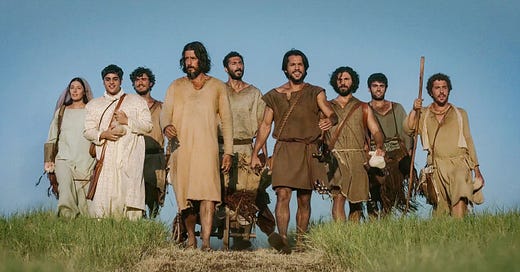



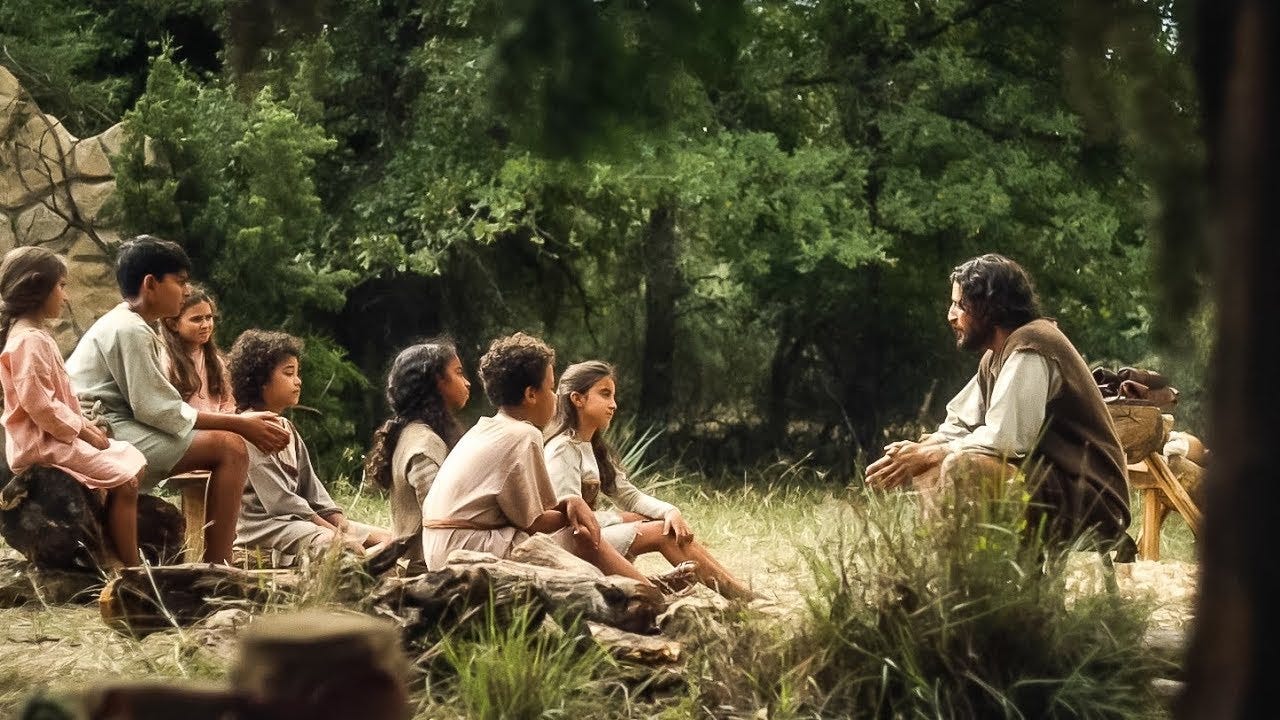
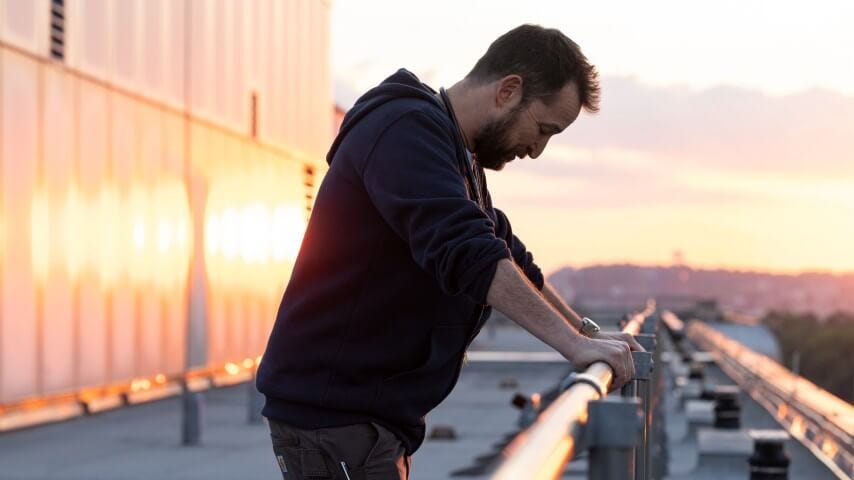
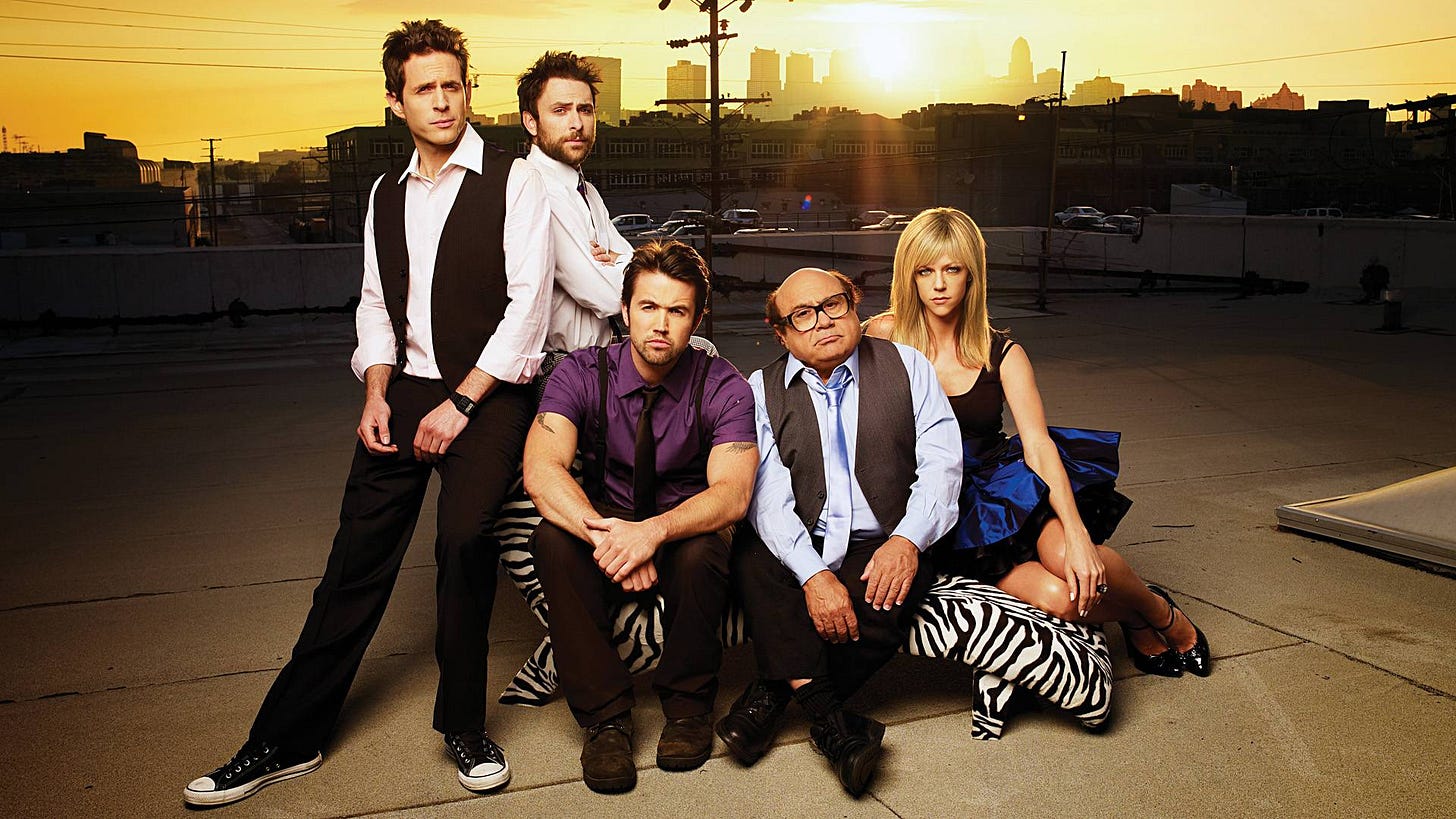
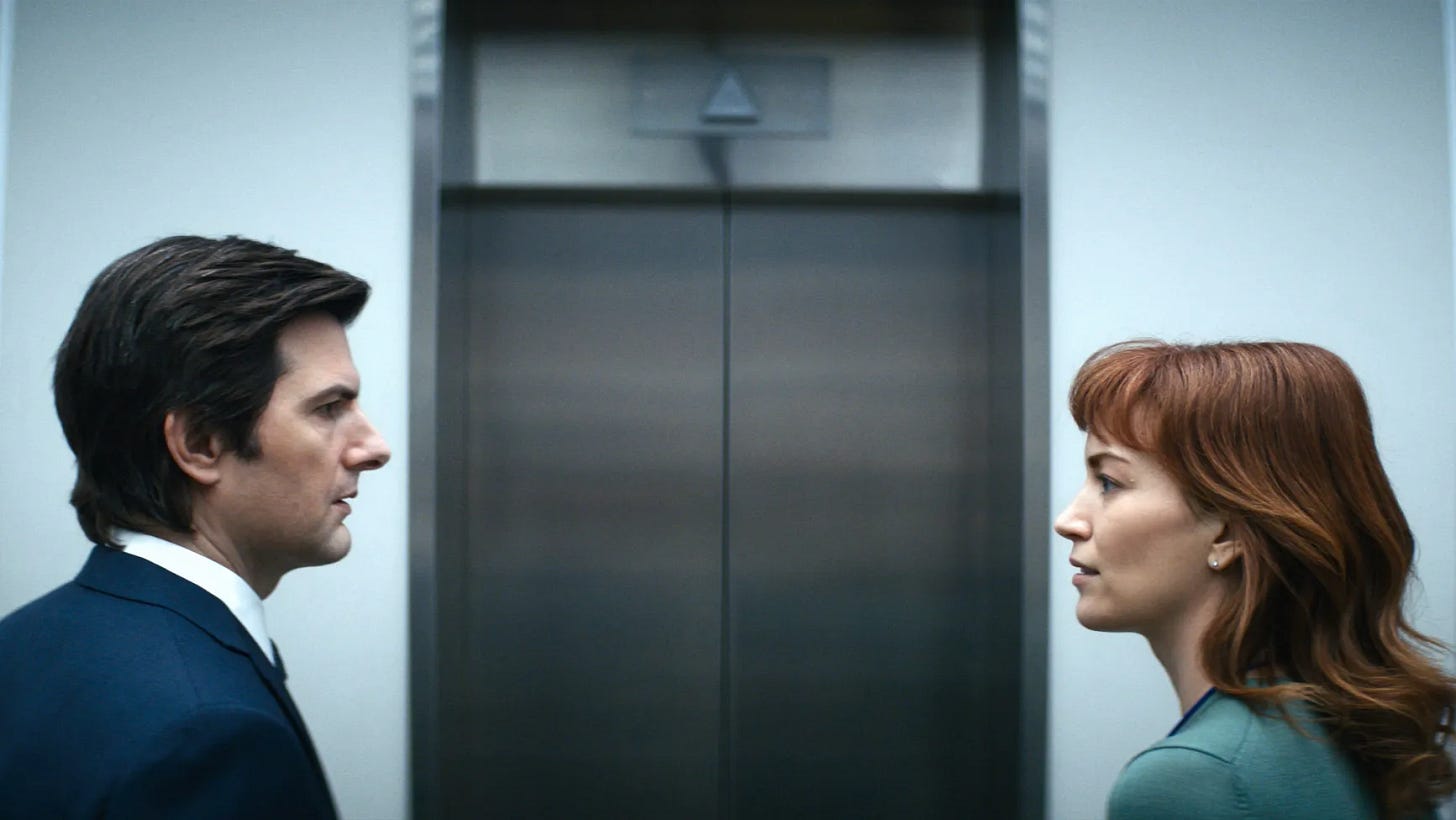
We love The Chosen at our house but we can relate to all your hesitations as well. And we are very slow with tv so we’re still working on season four. The two things that bug me the most are the sheer number of possessions everyone owns. Are they poor or do they have houses crammed with stuff? And, especially, I don’t think they would waste fuel the way they and everyone around them seem to. So many torches—sometimes during the day! Just kind of amusing. And, then, the pace is so very slow. I think this is partly a feature. But points where an entire conversation is held while a former fisherman ties a single tent knot? No. 😂. Minor quibbles, both!
I have generally enjoyed The Chosen. Just now catching up with the latest season and finding some slow going. Almost the feel of one sequel too many. Not bad, just not the same standard. Peter's confession is definitely given a Catholic twist; Peter is the rock, not the confession. Interesting setting at the Gates of Hell.
Overall, the series that I have seen has been good, as you note, but needs to be watched with care and attention to Scripture, as does all human creative effort.